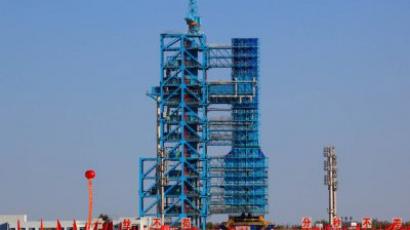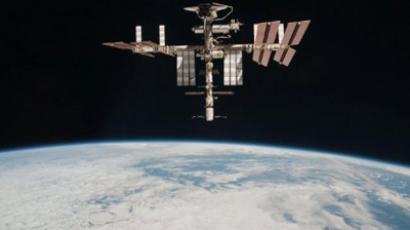Russia launches first Progress since crash
A Soyuz rocket carrying a Progress M-13M spaceship containing nearly three tons of cargo for the ISS successfully blasted off from Baikonur at 10.11 GMT on Sunday. The outcome of the mission will determine the future of manned operations at the ISS.
It will take the Progress three days to arrive at the International Space Station where the spacecraft is expected to dock on Wednesday.It is the first launch of a Soyuz rocket with a Progress cargo ship since a crash on August 24 when the similarly-packaged rocket's third-stage engine shut down prematurely. Engineers discovered that the problem was caused by a low fuel feed, and returned all the engines in stock to the manufacturer for inspection.Since then there have been two Soyuz launches, both successful. Just over a week ago, the rocket made its very first foreign launch, from French Guiana, delivering the first elements of Europe's new satellite navigation system to orbit.This spacecraft has brand new engines, which were manufactured according to stricter quality standards. The Progress M-13M spacecraft is packed with 2.9 tons of food, fuel and supplies, including 750 kg of propellant, 50 kg of oxygen, 420 kg of water, and 1,400 kg of maintenance gear, spare parts and hardware for experiments.However, the reason so much attention is being paid to this unmanned launch is not its cargo, as the ISS has enough supplies for almost a year of continuous operation, according to NASA.The success of the current launch will pave the way for a manned flight bringing a new team to the International Space Station next month.NASA astronaut Dan Burbank and Russian cosmonauts Anatoly Ivanishin and Anton Shkaplerov are scheduled to take over the watch on November 13. But their rocket will not be given clearance for launch until its unmanned counterpart successfully reaches the station.The current crew of the ISS will return to Earth on November 22, and if no replacement is delivered by that date, for the first time since 2000, the station will go into unmanned operation.














